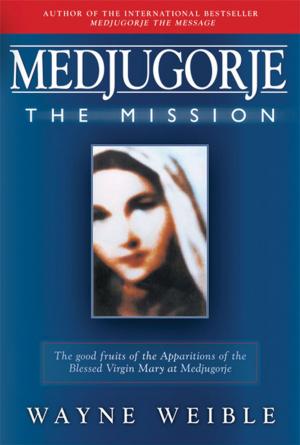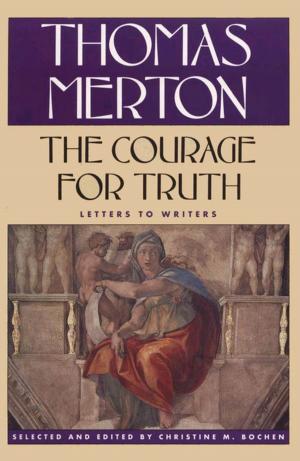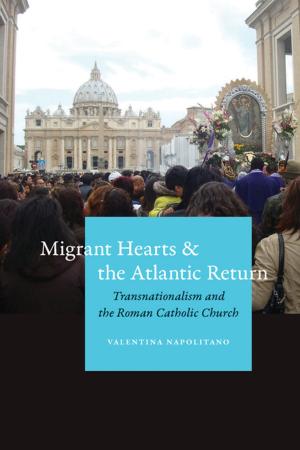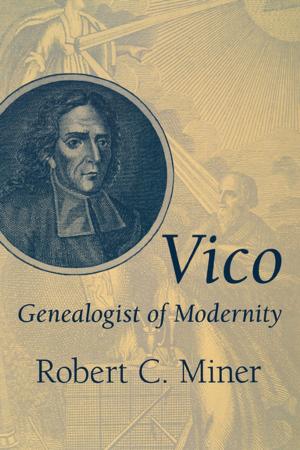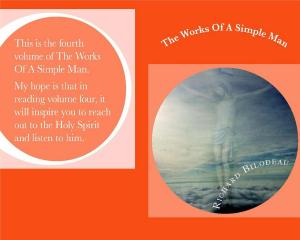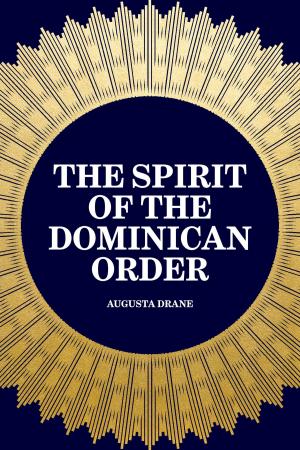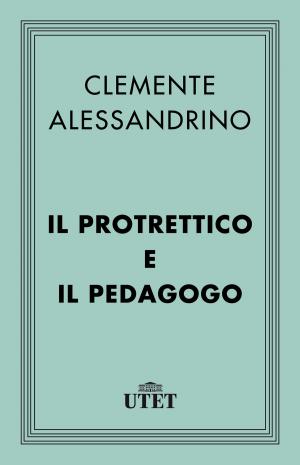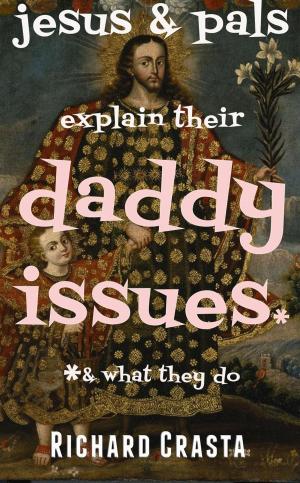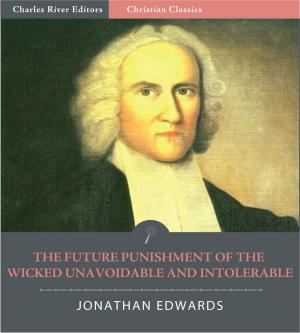When the Enlightenment Hit the Neighborhoods
The Waning of the Catholic Tradition - and Hope for Its Future
Nonfiction, Religion & Spirituality, Christianity, Church, Church Institutions & Organizations, Philosophy, Religious, Denominations, Catholic, Catholicism| Author: | Jeanne Follman | ISBN: | 9780967945613 |
| Publisher: | Duomo Press | Publication: | October 12, 2012 |
| Imprint: | Language: | English |
| Author: | Jeanne Follman |
| ISBN: | 9780967945613 |
| Publisher: | Duomo Press |
| Publication: | October 12, 2012 |
| Imprint: | |
| Language: | English |
Faith and reason are in a fight, and faith is losing.
Why has the traditional, authority-based way of doing faith collapsed? Only fifteen percent of young Catholics attend church regularly. If ex-Catholics were a religious denomination, they would be the third-largest in the U.S. The young, the quizzical, the semi-faithful, the somewhat churched, the unchurched, the agnostic, and the fallen away no longer look to faith for credible insight into how they should live their lives. Why is there such massive indifference to faith? And why, for those who continue to participate, is there such fragmentation of identity, with splits across the progressive/conservative divide and splits across time, between the pre-Vatican II Church and the post-Vatican II Church?
In her illustrated personal essay, author Jeanne Follman explores the reasons why faith is in such trouble today as she tells the story, and the backstory, of the fifty years since Vatican II, and challenges us to reclaim the experience of the sacred and modernize Church governance.
Follman argues three things: First, that the whole Catholic tradition needs to be excavated, rethought, and recreated, thoroughly and entirely, top to bottom, to create a new understanding that both makes sense in the modern world and fully celebrates the mysteries and traditions inherent in being Catholic. Second, Church governance needs to be reformed by the faithful, through the exercise of their knowledge, their voices, and their pocketbooks. Third, Catholics should look to the thought of St. Thomas Aquinas (primer included) for a way to make faith and reason play better together. His belief that the world is a holy place, that faith and reason are coherent, and that the truth can be found through free and open debate can be the touchstones Catholics use as they state anew the truths of their tradition and create governance structures that make sense in the modern world.
Jeanne M. Follman is a baby boomer Roman Catholic raised in the 1950s in a Catholic parish on the South Side of Chicago. When she grew up, faith shaped the map of the world: the natural, the supernatural, the angels, the saints, sin, grace, heaven, and hell. When her children grew up, the basic nature of reality was shaped by reason and evidence. This had an enormous impact on the way in which faith was experienced, undercutting the religious authority through which faith had been legitimized for two thousand years—and that was just the beginning. Her experience as a parent, software developer, corporate planner, technology writer, trainer, and fan of the thought of St. Thomas Aquinas has shaped her understanding of the jolt faith got when the Enlightenment hit the neighborhoods, and what Catholics might do about it.
Over 75 full-color images.
CONTENTS
Preface
PART I. The Circumstances
The Great Obliteration
Beautiful Evidence
That Lost World
Religion and the Sacred
PART II. The StoryWhat's Been Going On for the Past Couple of Hundred Years
How Authority Collapsed
On Our Own Terms
The Taming of Catholicism
Authority in the Church
The Mess We're in Today
PART III. Faith and Reason
Thinking About Faith; Thinking About Reason
Why Aquinas
PART IV. The FutureRecreating Tradition: Belief
Recreating Tradition: Morals
Recreating Tradition: Liturgy
Reforming Church Authority
PRIMER ON AQUINAS: The Cool Bits and the Framework
Faith and reason are in a fight, and faith is losing.
Why has the traditional, authority-based way of doing faith collapsed? Only fifteen percent of young Catholics attend church regularly. If ex-Catholics were a religious denomination, they would be the third-largest in the U.S. The young, the quizzical, the semi-faithful, the somewhat churched, the unchurched, the agnostic, and the fallen away no longer look to faith for credible insight into how they should live their lives. Why is there such massive indifference to faith? And why, for those who continue to participate, is there such fragmentation of identity, with splits across the progressive/conservative divide and splits across time, between the pre-Vatican II Church and the post-Vatican II Church?
In her illustrated personal essay, author Jeanne Follman explores the reasons why faith is in such trouble today as she tells the story, and the backstory, of the fifty years since Vatican II, and challenges us to reclaim the experience of the sacred and modernize Church governance.
Follman argues three things: First, that the whole Catholic tradition needs to be excavated, rethought, and recreated, thoroughly and entirely, top to bottom, to create a new understanding that both makes sense in the modern world and fully celebrates the mysteries and traditions inherent in being Catholic. Second, Church governance needs to be reformed by the faithful, through the exercise of their knowledge, their voices, and their pocketbooks. Third, Catholics should look to the thought of St. Thomas Aquinas (primer included) for a way to make faith and reason play better together. His belief that the world is a holy place, that faith and reason are coherent, and that the truth can be found through free and open debate can be the touchstones Catholics use as they state anew the truths of their tradition and create governance structures that make sense in the modern world.
Jeanne M. Follman is a baby boomer Roman Catholic raised in the 1950s in a Catholic parish on the South Side of Chicago. When she grew up, faith shaped the map of the world: the natural, the supernatural, the angels, the saints, sin, grace, heaven, and hell. When her children grew up, the basic nature of reality was shaped by reason and evidence. This had an enormous impact on the way in which faith was experienced, undercutting the religious authority through which faith had been legitimized for two thousand years—and that was just the beginning. Her experience as a parent, software developer, corporate planner, technology writer, trainer, and fan of the thought of St. Thomas Aquinas has shaped her understanding of the jolt faith got when the Enlightenment hit the neighborhoods, and what Catholics might do about it.
Over 75 full-color images.
CONTENTS
Preface
PART I. The Circumstances
The Great Obliteration
Beautiful Evidence
That Lost World
Religion and the Sacred
PART II. The StoryWhat's Been Going On for the Past Couple of Hundred Years
How Authority Collapsed
On Our Own Terms
The Taming of Catholicism
Authority in the Church
The Mess We're in Today
PART III. Faith and Reason
Thinking About Faith; Thinking About Reason
Why Aquinas
PART IV. The FutureRecreating Tradition: Belief
Recreating Tradition: Morals
Recreating Tradition: Liturgy
Reforming Church Authority
PRIMER ON AQUINAS: The Cool Bits and the Framework

